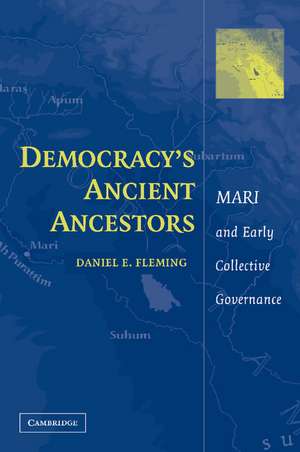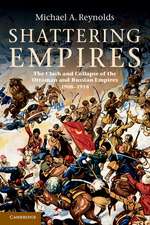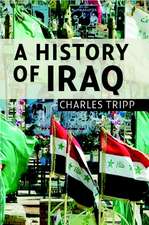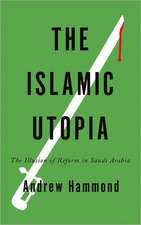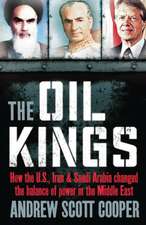Democracy's Ancient Ancestors: Mari and Early Collective Governance
Autor Daniel E. Flemingen Limba Engleză Paperback – 18 iul 2012
| Toate formatele și edițiile | Preț | Express |
|---|---|---|
| Paperback (1) | 386.97 lei 6-8 săpt. | |
| Cambridge University Press – 18 iul 2012 | 386.97 lei 6-8 săpt. | |
| Hardback (1) | 509.86 lei 6-8 săpt. | |
| Cambridge University Press – 25 ian 2004 | 509.86 lei 6-8 săpt. |
Preț: 386.97 lei
Nou
Puncte Express: 580
Preț estimativ în valută:
74.05€ • 77.47$ • 61.51£
74.05€ • 77.47$ • 61.51£
Carte tipărită la comandă
Livrare economică 02-16 aprilie
Preluare comenzi: 021 569.72.76
Specificații
ISBN-13: 9781107404939
ISBN-10: 1107404932
Pagini: 390
Ilustrații: black & white illustrations
Dimensiuni: 152 x 229 x 22 mm
Greutate: 0.57 kg
Editura: Cambridge University Press
Colecția Cambridge University Press
Locul publicării:New York, United States
ISBN-10: 1107404932
Pagini: 390
Ilustrații: black & white illustrations
Dimensiuni: 152 x 229 x 22 mm
Greutate: 0.57 kg
Editura: Cambridge University Press
Colecția Cambridge University Press
Locul publicării:New York, United States
Cuprins
Preface; Part I. Introduction: 1. The Mari texts; 2. A survey of Mari history; 3. The Mari archives and political history; 4. A text-based study: comments on methodology; Part II. The Tribal World of Zimri-Lim: 5. Tribally organized pastoralists and the Amorrites; 6. The primary constituents of the confederacies: Sim'alite gayum and Yaminite li'mum; 7. The local leader of tribe and town: the Sugagum in service to the Mari kingdom; 8. The chief of pasture: the Merhum; 9. The 'Hana' tent-dwellers; 10. The other confederacy: the Yaminites; Part III. The Archaic State and the Matum 'Land': 11. Urbanism and archaic states; 12. The matum: the basic unit of regional politics in the early second millennium; 13. Subdividing the major matums: the halsum district; 14. Population terminology not tied to political entity; 15. Zimri-Lim and the land of the tent-dwellers (mat Hana); Part IV. The Collective and the Town: 16. The towns of the Mari archives; 17. The collective face of town or land; 18. Elders; 19. Heads; 20. Words for assembly; 21. Imar, Tuttul, and Urgis: old towns with strong collective traditions; 22. Mari in third-millenium towns; 23. On explaining corporate power; Part V. Conclusions: 24. The political world of the Mari archives; 25. Before democracy; Bibliography; Glossaries; Indices.
Recenzii
'This is an important and impressive work … What emerges from this study is a picture that is much more complex, nuanced, and to some extent confusing than those traditionally drawn of Mesopotamian societies and states. It is thus certain to be received with great interest by a number of disciplines beyond Assyriology (such as history, political science, and anthropology) and to stimulate intensive discussions on a wide range of issues. Not least, it makes a serious contribution to an old debate, triggered more than a half-century ago by Thorkild Jacobsen, on whether certain traits in Mesopotamian mythical and literary traditions can be interpreted as evidence for the existence of 'primitive democracies' in an early period, before the emergence of the great empires led by centralized monarchies. In this respect the book is certain to attract the interest of classicists and ancient historians as well.' Kurt A. Raaflaub
Descriere
This book examines the politics of the ancient Near East through archives of letters found in the royal palace of Mari.
